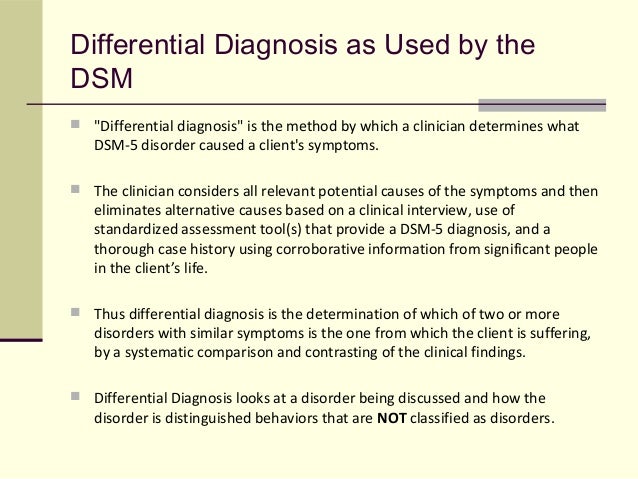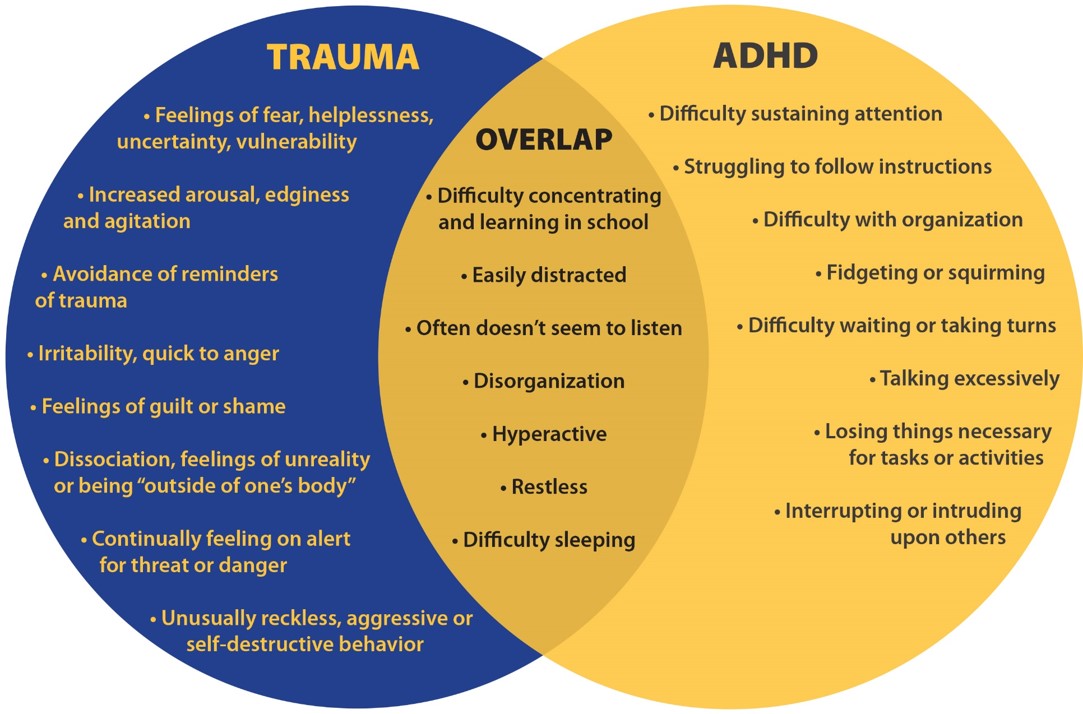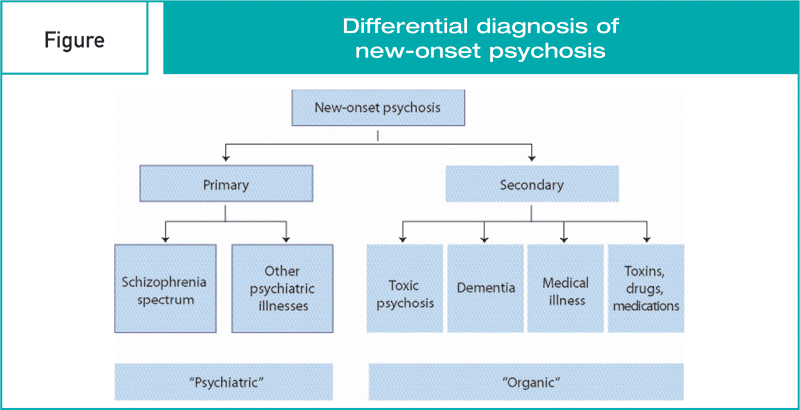What Is Differential Diagnosis In Mental Health

Most differential diagnoses include a physical exam and a health history.
What is differential diagnosis in mental health. Differential diagnosis sometimes abbreviated ddx or or δδ is the systematic method used to identify the condition syndrome or disorder causing a patient s signs and symptoms. Unfortunately there are currently no lab tests to identify depression. Medicinenet does not provide medical advice diagnosis or treatment. Medical nursing psychiatric psychological counseling social work marriage and family therapy accurate diagnosis allows for common ground to be established in terms of research.
Instead the diagnosis is based on your medical history and your symptoms. Differentiate adjustment disorders from the residual. 1 major depressive disorder lucy s unhappy childhood and psychiatric history of depression support this diagnosis. Rule out malingering and factitious disorder step 2.
In addition she meets at least five of the dms iv criteria on mental state examination. The process of weighing the probability of one disease versus that of other diseases possibly accounting for a patient s illness. Steps involved in a differential diagnosis when performing a. Your doctor must differentiate between these to determine the actual diagnosis and appropriate treatment plan.
Differential diagnosis is the bread and butter of our task as clinicians patients come into the office seeking relief from broad symptoms such as depressed mood or fatigue and clinicians must consider which of all the disorders in dsm could account for those symptoms. A differential diagnosis means that there is more than one possibility for your diagnosis. A differential diagnosis is a list of possible conditions or diseases that could be causing your symptoms based off of this information. The method of differential diagnosis was first suggested for use in the diagnosis of mental disorders by emil kraepelin.
Determine the specific primary disorder step 5. Rule out substance etiology step 3. Rule out malingering and factitious disorder. A differential diagnosis is used to help diagnose physical or mental health disorders that cause similar symptoms.
From the information gathered in the history and examination the following differential diagnosis can be posited. Rule out a disorder due to a general medical condition step 4. How will my provider make a differential diagnosis.

/diagnosis-569695095f9b58eba49dd551.jpg)















